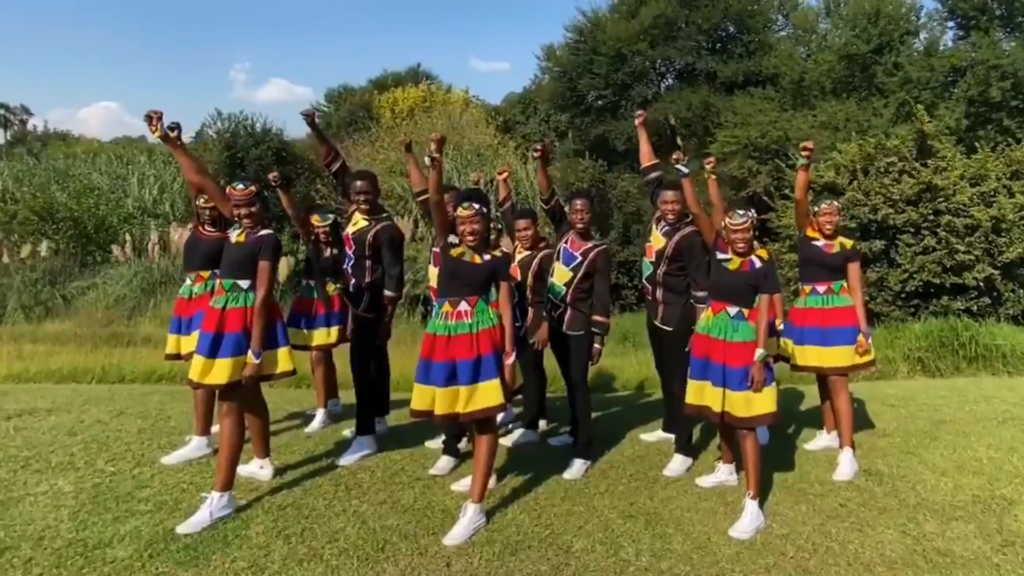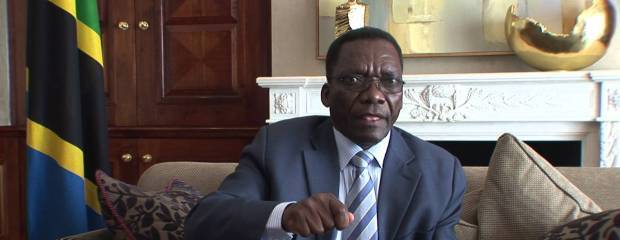This is how the youth is mobilising tech during COVID19

During the crisis, young people are innovating and disrupting. These trends should be supported even after the pandemic.

The Ndlovu Youth Choir is one of many groups of young people spreading information about COVID-19. Credit: @ChoirAfrica.
Read all our COVID-19 coverage
The world’s youngest continent has not been able to avoid the effects of the COVID-19 pandemic. In Africa, where almost 60% of people are under the age of 25, the economy is expected to lose tens of billions of dollars. The risk of food insecurity has increased and the reliance on the informal sector has made many particularly vulnerable.
In the face of these challenges, however, young people have found new ways to survive and transform their lives and communities. In many cases, they have done so by harnessing the power of digital technologies. These innovations have both helped them respond to the current crisis and could shape the future for the better with the right support.
Here are three areas in which young people are utilising technologies in ways that could have positive repercussions going forwards.
1) Amplifying action and accurate information
Accurate information is essential to help counter the risks of COVID-19 and, in many places, the youth have proven crucial in this.
In South Africa, young people have mobilised through choirs to send prevention messages. In Liberia, youth started a prevention campaign and are sewing masks from African wax prints. Rural Uganda has seen young members of village health teams sharing vital health information through radio, TV and social media. And in Ghana, young health workers and volunteers are visiting high risk areas to spread health messages and, where possible, test residents.
It is essential to ensure young people are provided with new technologies that can help them build on existing networks and disseminate knowledge about issues such as public health.
Technology and digital platforms can also enhance other forms of young people’s mobilisations. They can allow youth-led networks, associations, religious groups and cooperatives to strengthen individual actions and act as catalysts for new forms of civic participation.
In an interview earlier this year, Dr Shakira Choonara, a member of the African Union Youth Council, said: “I don’t think Africa needs leaders, I think Africa needs activists”. Many youthful activists have mobilised during the pandemic. Their efforts must be supported and could be enhanced through investments in young people’s digital literacy and development.
2) Innovating businesses
Around the world, businesses have had to find ways to adapt to the current situation. For many companies, this has meant turning to delivery services and finding ways to operate remotely. In Uganda, for instance, several restaurants, supermarkets and online shops have been able to continue operating through delivery applications such as Jumia and SafeBoda. These apps are mainly accessed, used and operated by young people.
Digital platforms such as these are thriving in Africa and more than 80% of them are homegrown. This is a positive trend given that one in four young people say they are planning to start their own business in the next five years.
Across the continent, youth have also responded to the current crisis by starting new businesses. In Ghana, young people have been making reusable masks and designing automated, contact-free and solar powered hand washing facilities using local materials.
The recession that will be caused by the coronavirus, however, poses many risks for start-ups. Some governments have unveiled stimulus packages, which may help protect people’s livelihoods, but young people’s agency and business innovation also need to be nurtured. Ghana’s Coronavirus Alleviation Programme Business Support Scheme to micro, small and medium enterprises is an example of how this support could be provided.
3) Digital payments
Unbanked young people have traditionally struggled to access financial services that are often too costly, located too far away or simply ill-suited to their needs.
By contrast, mobile money accounts are booming. In 2019, there were nearly 500 million mobile-money users in sub-Saharan Africa. They collectively carried out 23.8 billion transactions last year worth a total of $456 billion. This figure is over triple the value of transactions recorded in South Asia, the second highest ranked region for mobile money services.
The pandemic has only accelerated this trend as people increasingly switch from cash to mobile payments. Mobile telecommunications networks such as MTN and Airtel in Uganda have facilitated this development by reducing transaction charges during the pandemic.
This presents an important opportunity. Our research has found that, with some financial management training, young people can significantly increase their savings and success in accessing business loans. Teaching financial literacy and entrepreneurship skills through digital tools can be crucial in helping youth plan their lives as well as start and manage businesses.
At the same time, governments will need to take seriously the increased risks of cybercrime and phone scams. Collaborative efforts will be needed to tackle these dangers, including by implementing effective online security measures and digital IDs to prevent fraud.
After COVID-19
Young people will be central to both tackling the coronavirus crisis now and rebuilding economies after the pandemic subsides. Technologies and digital platforms have the potential to help in the process, such as by reducing costs and facilitating access to new opportunities. For this to reach its full potential, however, investments will be necessary in areas such as infrastructure, digital skills, online security and social protection for gig workers.
As the importance of young people’s initiative and technology are highlighted during the COVID-19 crisis, this is the perfect moment of governments and international partners to prioritise the digitalisation of the economy, education and financial sectors.
The Overseas Development Institute (ODI), Participatory Development Associates (PDA) and Development Research and Training (DRT) are launching a multi-stakeholder online consultation on sub-Saharan African youth and technology and are welcoming participation from a range of actors working in these themes. Find out more here.






